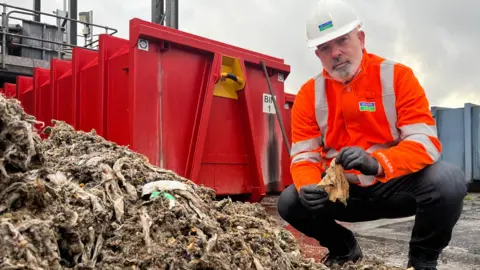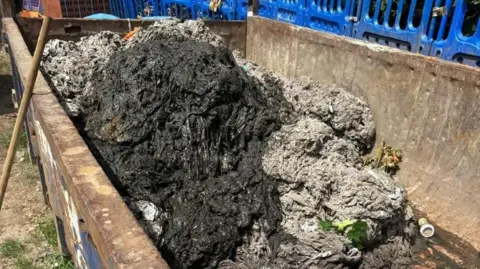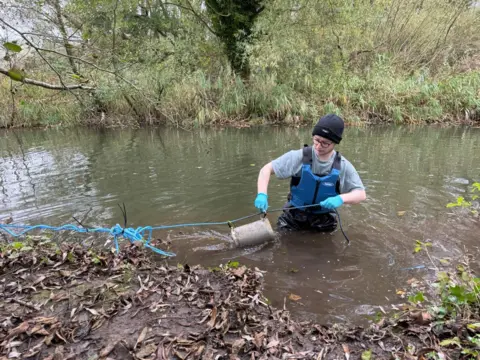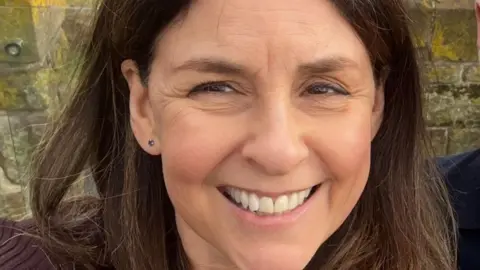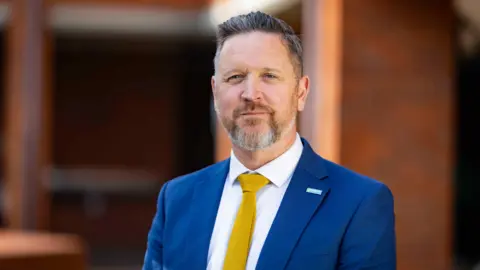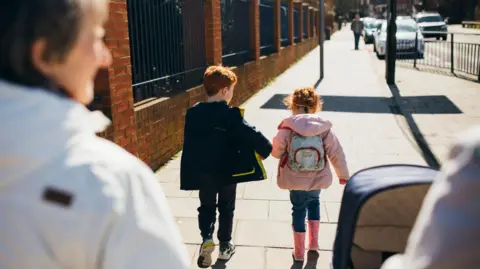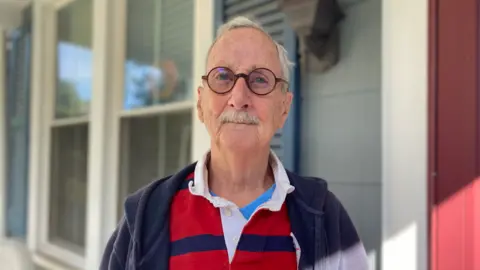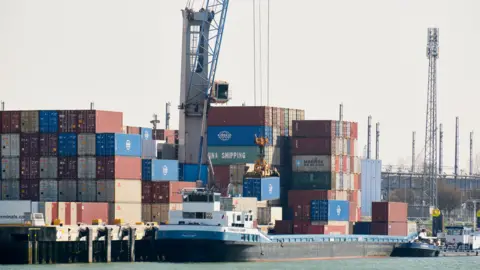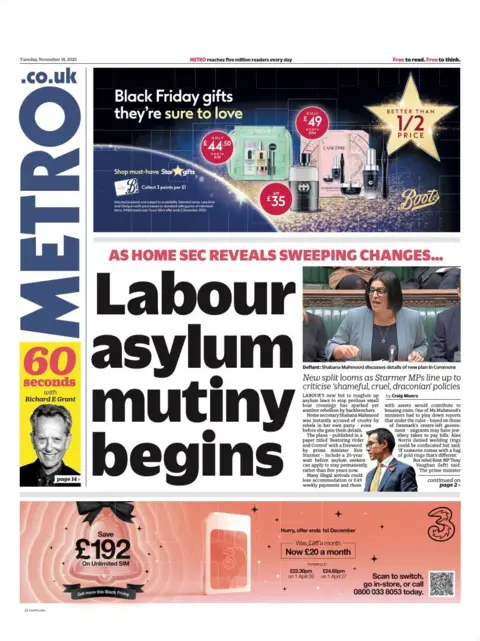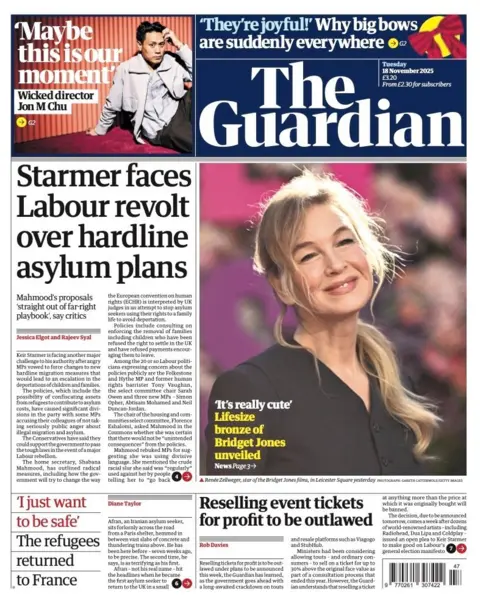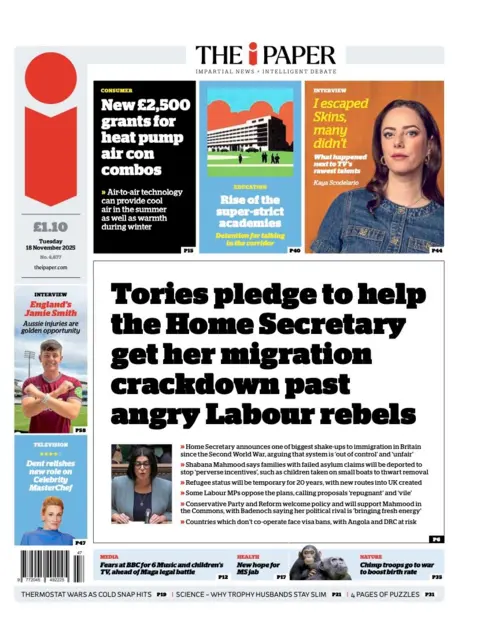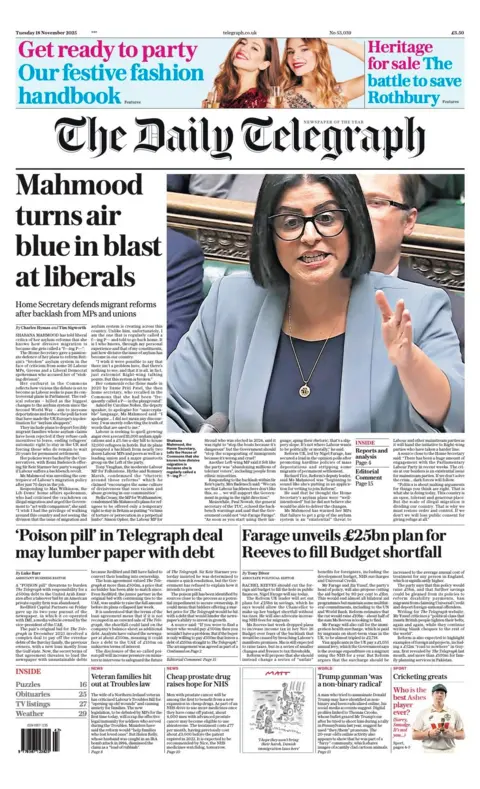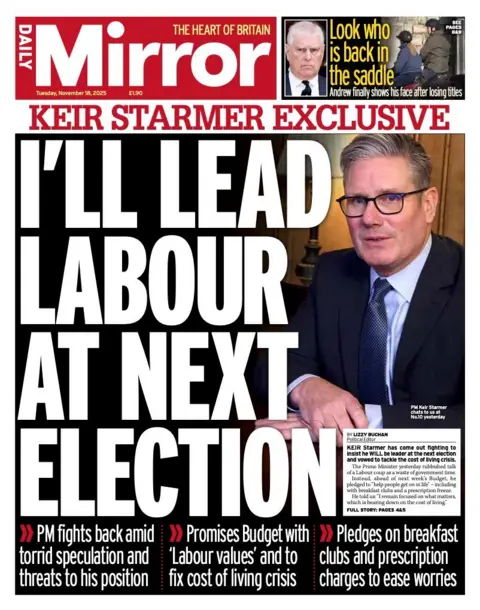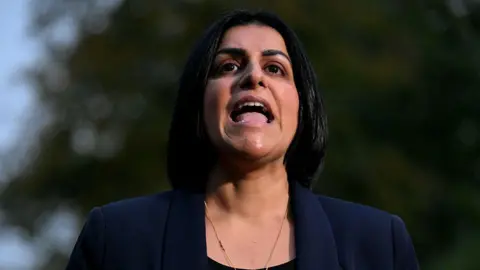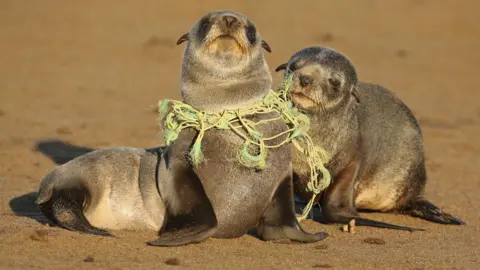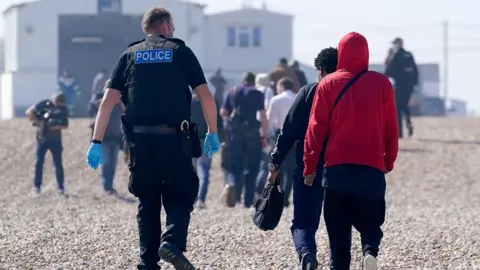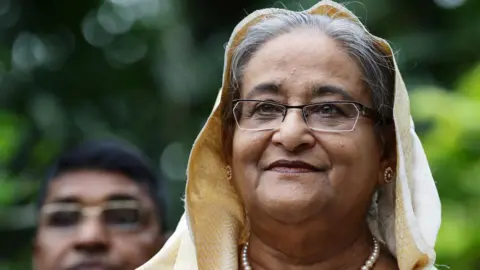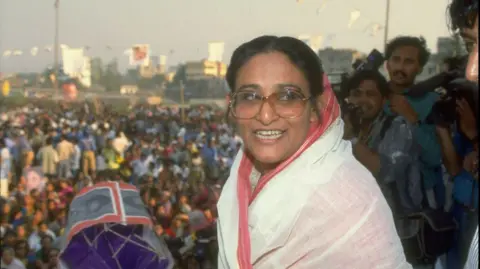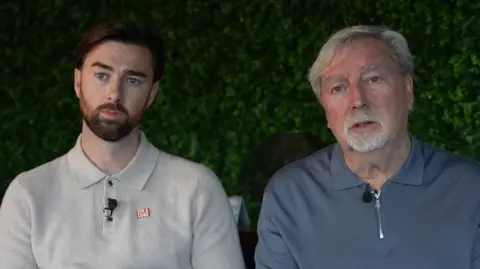Shelters plea for Gazans as winter rains raise fears of more disease and death

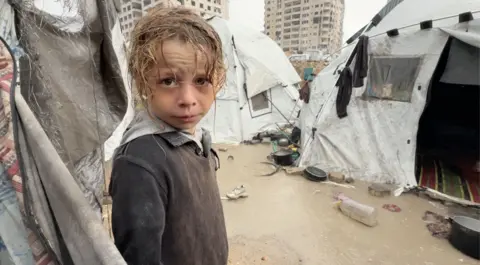 BBC
BBCAid agencies have reiterated calls for Israel to allow more tents and urgently needed supplies into Gaza after the first heavy winter rainfall, saying more than a quarter of a million families need emergency help with shelters.
"We are going to lose lives this winter. Children, families will perish," says Jan Egeland, Secretary General of the Norwegian Refugee Council (NRC).
"It's actually so frustrating that we've now lost so many crucial weeks since the adoption of the Trump peace plan, which said humanitarian aid would flow and the Palestinians would not needlessly continue to suffer."
With a majority of the population displaced by two-years of a devastating war, most Gazans now live in tents - many of them makeshift.
They have been clearing up after widespread flooding due to a winter storm that began on Friday.
There are fears that diseases could spread as rainwater has mixed with sewage water.
"My children are already sick and look at what happened to our tent," said Fatima Hamdona, crying in the rain over the weekend, as she showed a BBC freelance journalist the ankle-deep puddle inside her temporary home in Gaza City.
"We don't have food - the flour got all wet. We're people who've been destroyed. Where do we go? There's no shelter for us to go to now."

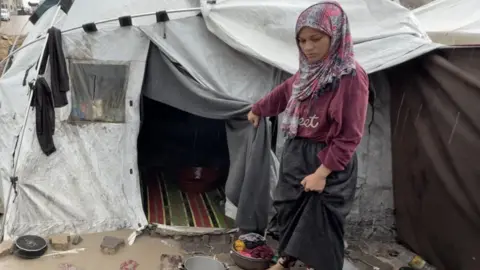
The story was the same in the southern city of Khan Younis.
"Our clothes, mattresses and blankets were flooded," said Nihad Shabat, as she tried to dry out her possessions there on Monday.
Her family has been sleeping inside a shelter made of sheets and blankets.
"We're worried about getting flooded again. We cannot afford to buy a tent."
A recent UN report found that across Gaza more than 80% of buildings had been destroyed and 92% in Gaza City.
According to the NRC - which has long led the so-called Shelter Cluster in Gaza, made up of some 20 non-governmental organisations (NGOs) - about 260,000 Palestinian families, or about 1.5 million people, are in need of emergency shelter assistance, lacking the basics to get through winter.
The NGOs say they have been able to get only about 19,000 tents into Gaza since the US-brokered Israel-Hamas ceasefire took effect on 10 October.
They say they have 44,000 pallets of aid - containing non-food items, including tents and bedding - blocked from entering. Supplies that have been bought are currently stuck in Egypt, Jordan and Israel.
Jan Egeland blames what he calls "a bureaucratic, military, politicised quagmire" running "counter to all humanitarian principles" for the hold-up.
In March, Israel introduced a new registration process for aid groups working in Gaza, citing security reasons. It requires that they give lists of their local Palestinian staff.
However, aid groups say that data protection laws in donor countries prevent them from handing over such information.


Many items, including tent poles, are also classed as "dual-use" by Israel, meaning they have a military as well as civilian purpose, and their entry is banned or heavily restricted.
The BBC has asked Cogat, the Israeli defence body that controls the border crossings, for details on numbers of imported tents but it has yet to respond.
On Sunday it posted on X: "Over the last few months, in preparation for the winter and protection from the rain, COGAT coordinated with the international community and facilitated close to 140,000 tarpaulins directly to the residents of the Gaza Strip."
"We call on international organizations to coordinate more tents and tarpaulins and other winter humanitarian responses."
It says it is working with the new US-led Civil-Military Coordination Center (CMCC) that has been set up in southern Israel and other international partners to plan "a catered humanitarian response for the upcoming winter".
International aid groups are hoping that the CMCC - which will oversee implementation of President Trump's 20-point Gaza peace plan - will help ease restrictions on their work.
With a foreign donor conference on reconstruction in the Palestinian territory expected to take place in Egypt soon, they say basic shelter supplies must be allowed to enter while longer-term plans are developed.
"It would not be a good thing if all these nations meet in Cairo to discuss long-term reconstruction for Palestinians in great need if they die before their high-rise buildings can be reconstructed," says Mr Egeland, who was previously the UN's Emergency Relief Coordinator.
"They need a tent today, they don't need a promise of a beachfront structure in five years."

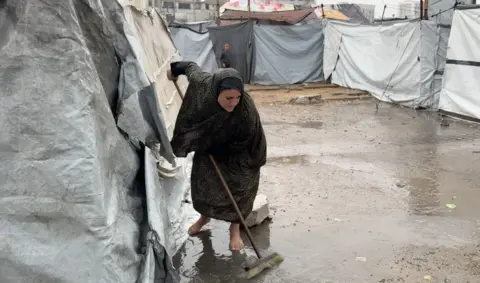
Palestinians have told the BBC that many tents - brought in by international agencies and Gulf donors - have been stolen and are available on the black market in Gaza.
They say that with a small increase in supply, prices have dropped from about $2,700 (2,330 euros; £2,050) before the ceasefire, to around $900-$1,000.
There are pleas for international help to distribute more shelters, more fairly.
"I hope everyone will join with us to end this crisis we're living through," says Alaa al-Dirghali in Khan Younis. "The tents endured two years under the sun and two years under the rain and they couldn't last this downpour."
"Until this moment, people are re-erecting these broken tents because they don't have any alternative. I pray to God that those responsible for handing out tents will give them to those who actually need them. They're getting stolen and sold to people at a very expensive price."

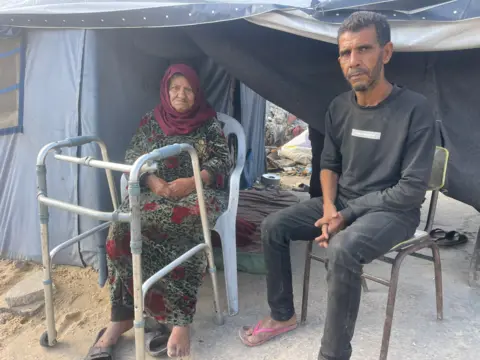
In Gaza City, Rami Deif Allah, who was displaced from Beit Hanoun, was drying out soaked mattresses in the weak sunshine, with his elderly mother and children.
He said a relative had given him a waterproof tent but that it was still flooded.
"We evacuated about 11 times and there was no safe place for us so we took shelter in these humble tents but it was all in vain. When the rain came they couldn't protect us," he said. "The water flooded us from above and below."
Like all Gazans, Rami longs for a permanent dwelling.
"We pray for this war to be fully over, and for everyone to return to their homes," he went on. "Even if we don't find our houses standing, with our sweat and blood we will rebuild. This situation of living out on the streets is unbearable."
